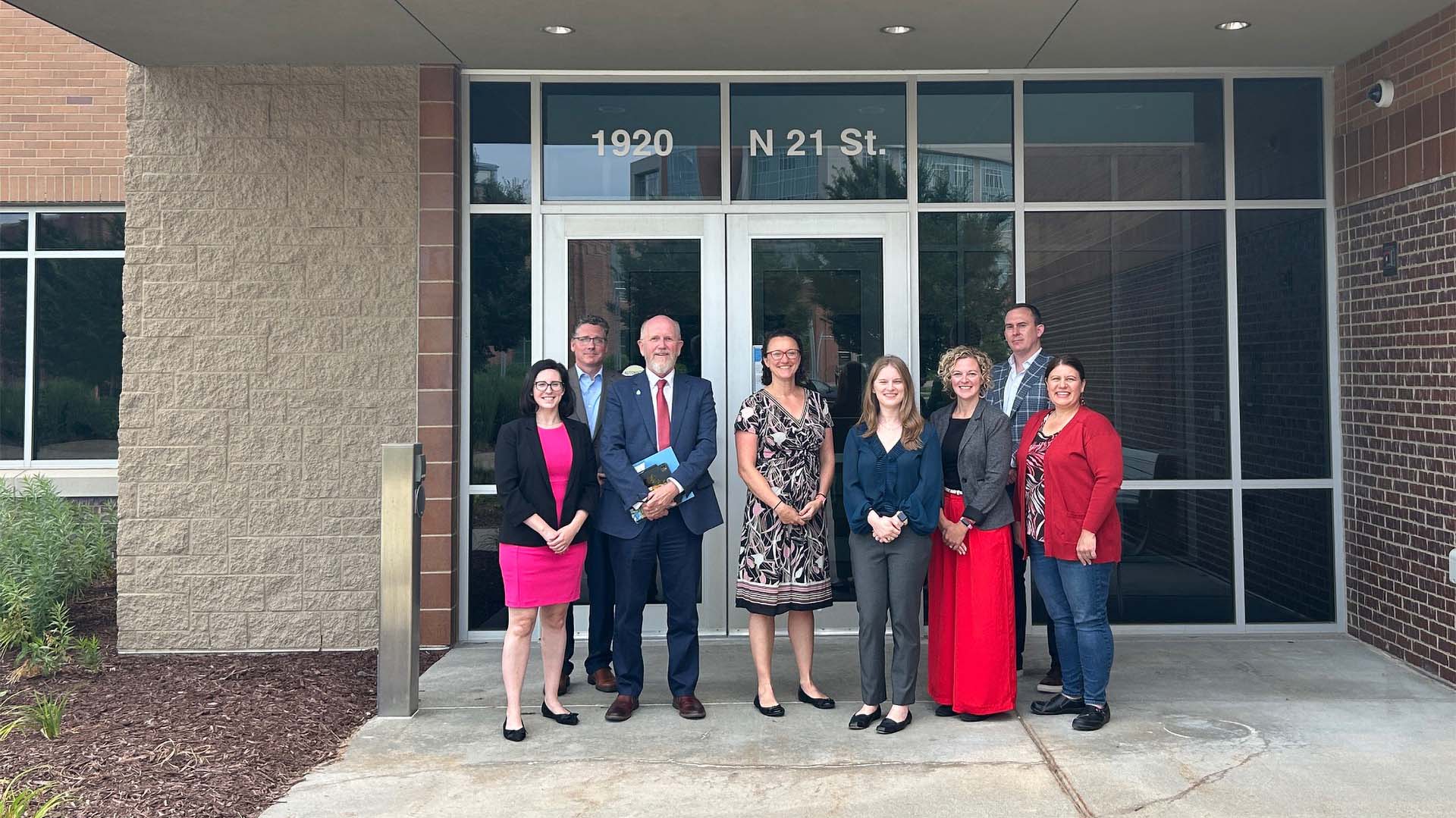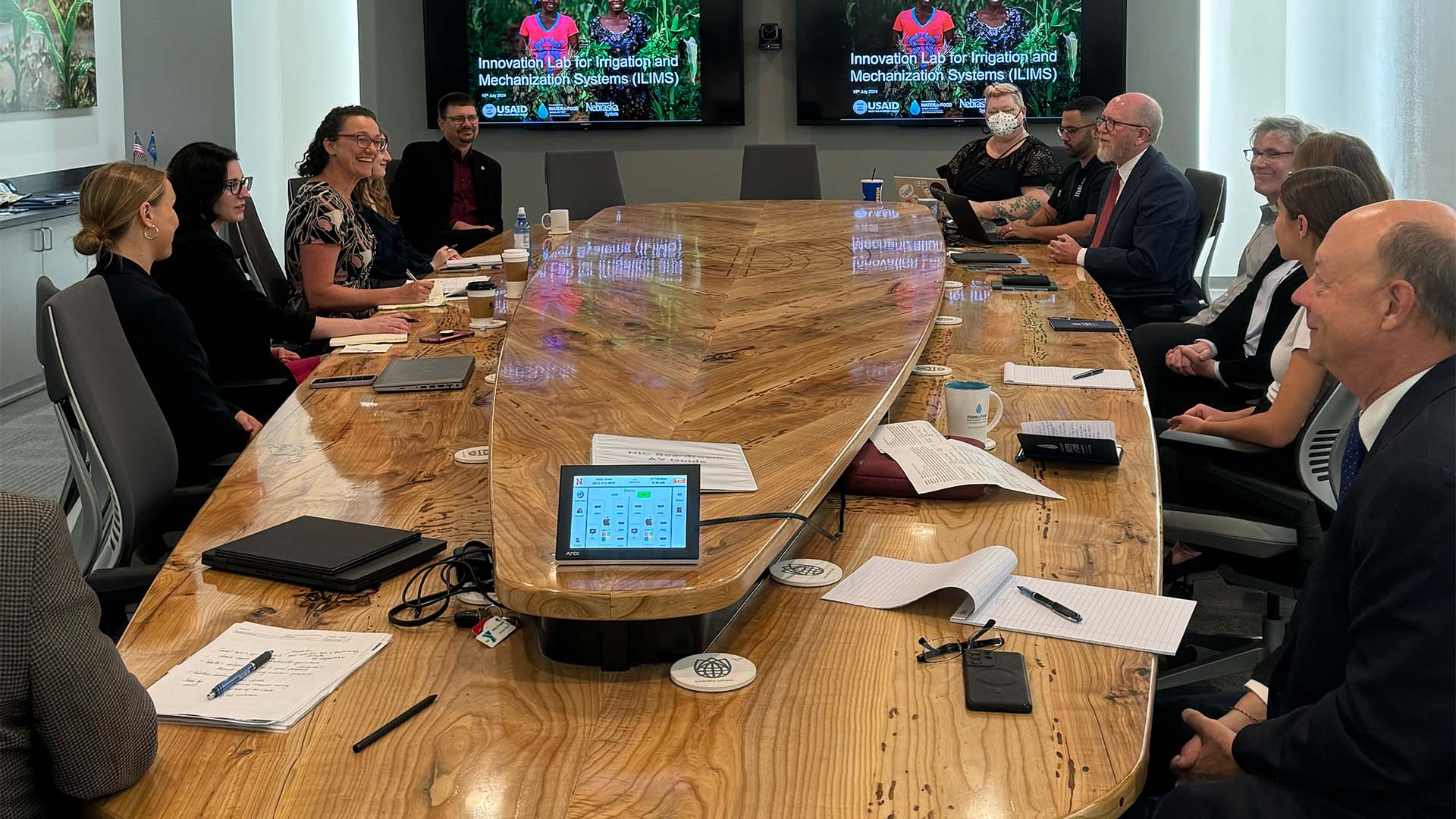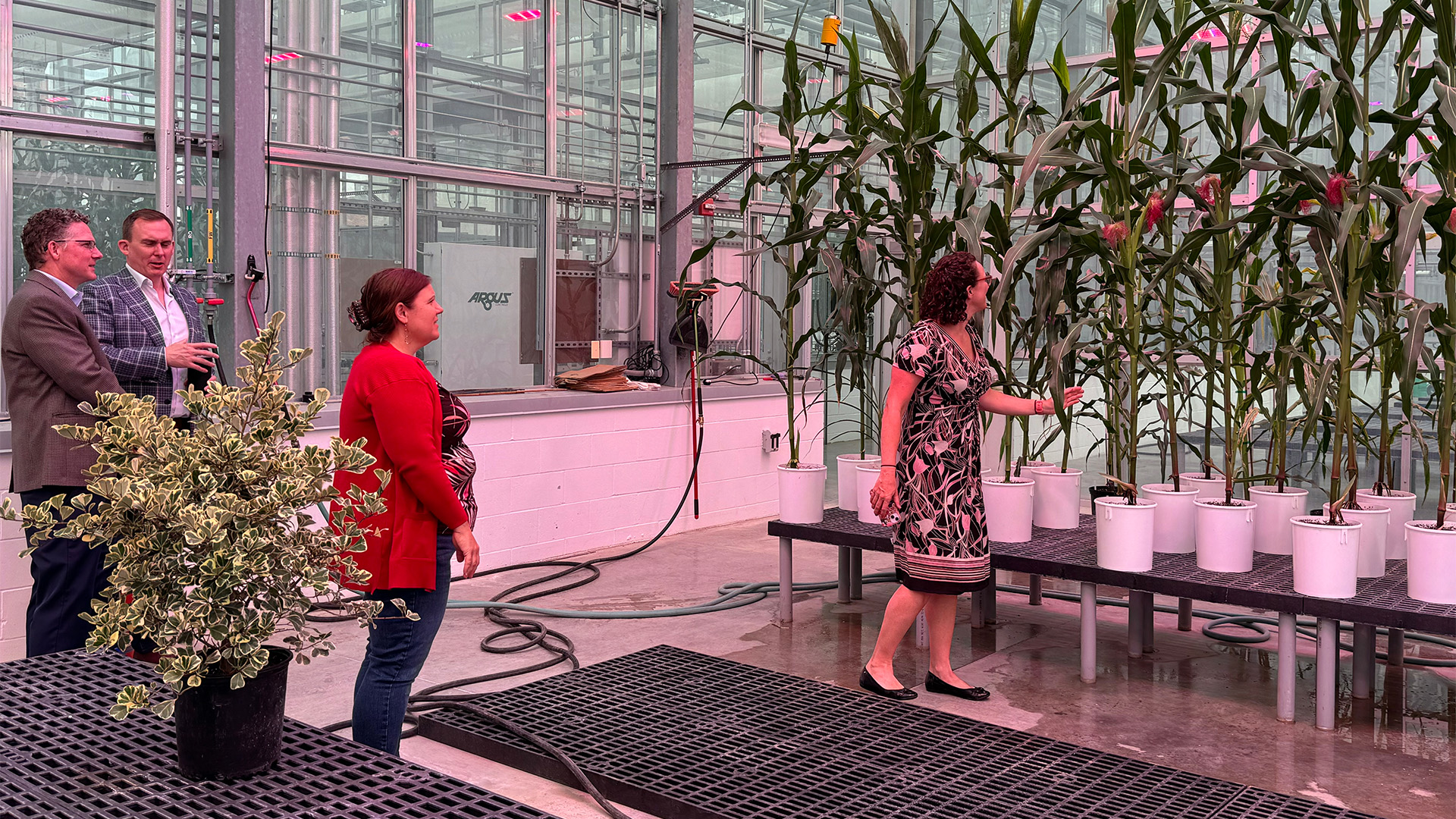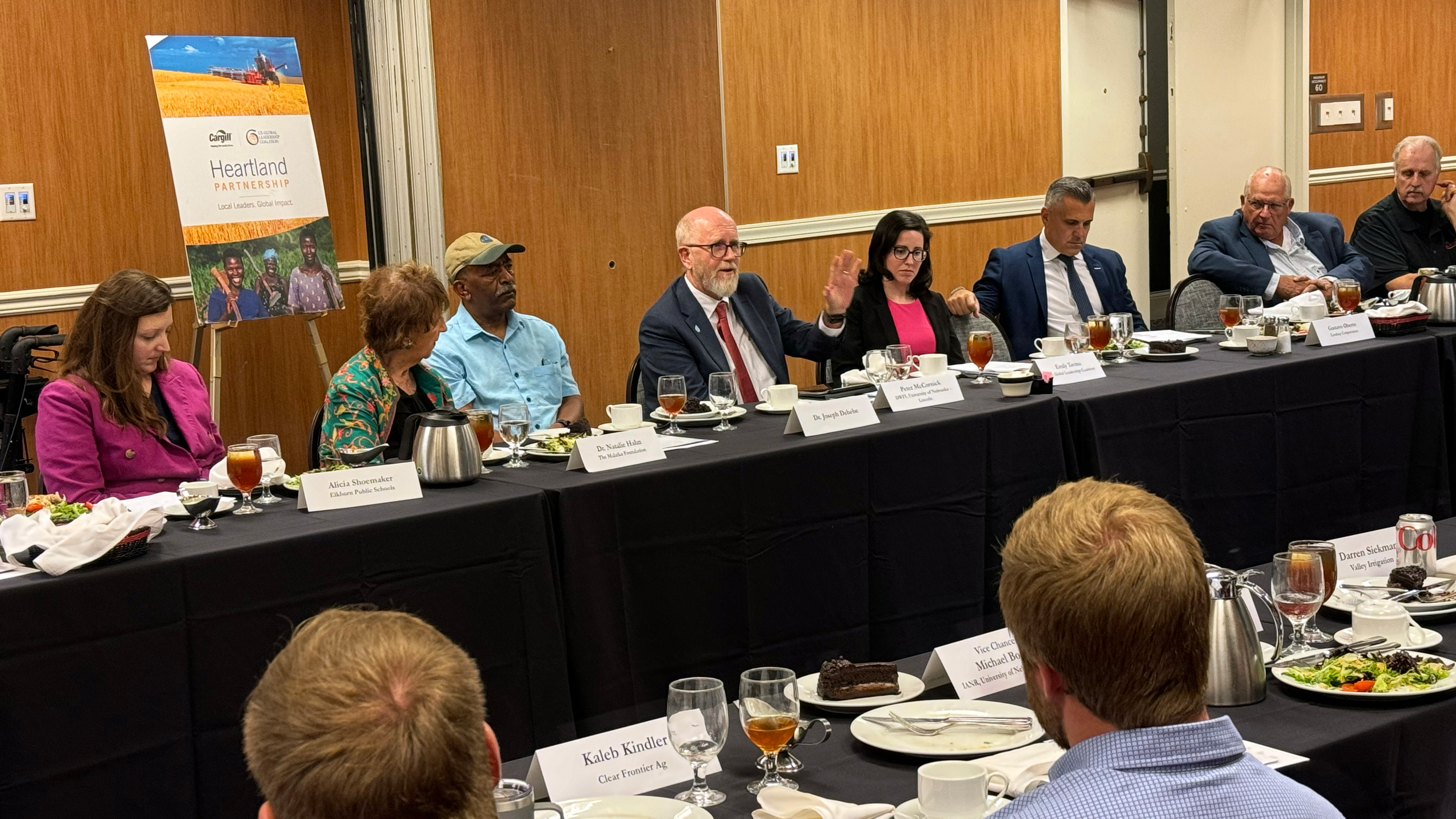USAIDs Vaughan speaks on global stability through food security during Nebraska visit
Ann Vaughan, Deputy Assistant Administrator of the Bureau of Resilience, Environment, and Food Security at the U.S. Agency for International Development, recently visited the Daugherty Water for Food Global Institute at the University of Nebraska in Lincoln to speak with DWFI and other agricultural leaders about the intersections of their work and USAID’s mission to support global stability and prosperity by advancing global food security.
DWFI leads the USAID-funded Feed the Future Lab for Irrigation and Mechanization Systems (ILIMS), which generates research-based evidence to support the growth of vibrant irrigation and mechanization markets; develops strong institutions and local capacity for their sustainability; and fosters opportunities for equitable access. Vaughan started the day by meeting with DWFI, ILIMS and University of Nebraska staff, as well as the ILIMS Methodology, Evaluation, and Learning Team and Program Coordinating Committee. She also visited the Greenhouse Innovation Center, part of UNL’s Institute of Agriculture and Natural Resources.
The U.S. Global Leadership Coalition (USGLC) hosted a luncheon and roundtable discussion with Vaughan and DWFI Executive Director Peter McCornick titled “America’s Global Leadership: Growing Opportunity for Nebraska.”' The event included policymakers and leaders in the agriculture industry and highlighted the benefits of international agricultural development programs for Nebraskan producers and businesses. It served as part of USGLC’s Farmers for Prosperity Initiative, a growing network of leaders from the agriculture sector committed to American global engagement and harnessing resources to help feed the world.
Key themes throughout the day included:
- Women/youth and food security.
Vaughan discussed the use of the MDD-W indicator, which indicates whether women of reproductive age are consuming micronutrient adequate diets. She also mentioned that while the number of women with access to agricultural financing has increased, women receive less than half the amount of new financing than men do collectively.
Additionally, economies and workforces can be stunted by food insecurity and malnutrition, as mental growth and brain development is influenced by the type and quantity of food consumed by children in their early years, Vaughan said.
- Demand-driven, scalable innovation.
Vaughan said that a success measure for any Feed the Future Lab would be for farmers to organically take up an innovation designed by the lab because of the benefits gained by using it. She emphasized the need for farmer involvement in any solution using a demand-driven model, focusing on not just farming which produces the greatest quantity but also the most nutritional value while accounting for cultural preferences in food.
McCornick stressed the importance of an existing or planned ecosystem when scaling any successful innovations to ensure long-term viability. Vaughan also added that the key to scaling is interaction with private industry partners, in addition to growers.
- Global leadership matters.
While shocks are local, their impacts are global. Vaughan said that shocks cross borders – climate events, pests and crop diseases don’t just affect a contained geographical area. International investment in global food security can also help American farmers by introducing new technologies, practices or innovations to the market to solve agricultural or water challenges while providing global stability and national security.
One major water management challenge is recovery from extreme events like flooding and drought, said McCornick. He added that some of the parts of the world that face these challenges more frequently also tend to be the least resilient. He encouraged redundancies in food systems while avoiding maladaptation to water challenges.
COOKIE USAGE:
The University of Nebraska System uses cookies to give you the best online experience. By clicking "I Agree" and/or continuing to use this website without adjusting your browser settings, you accept the use of cookies.





